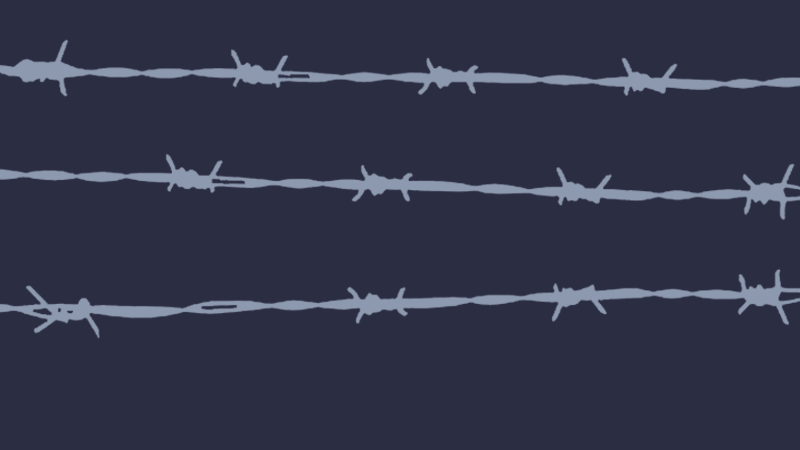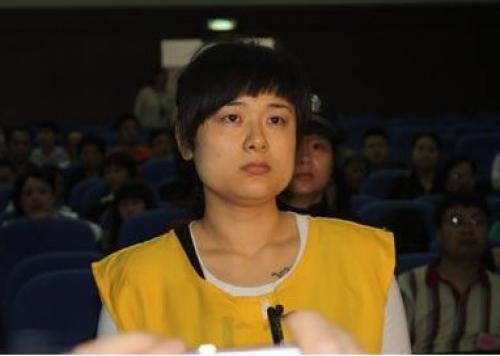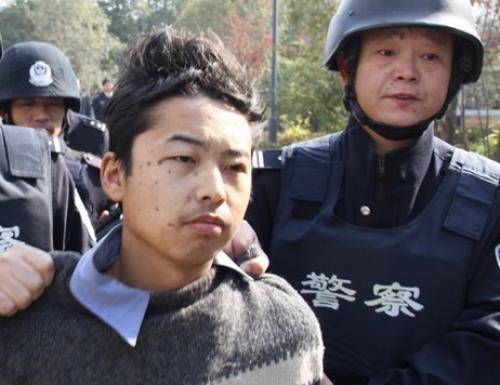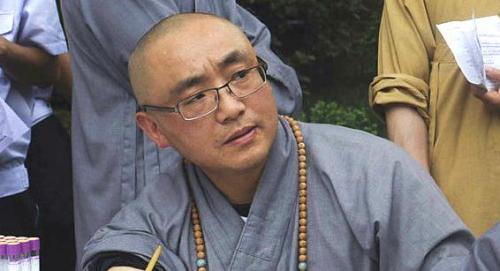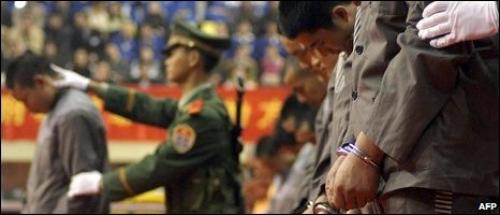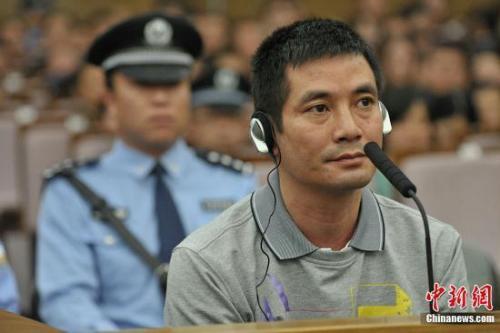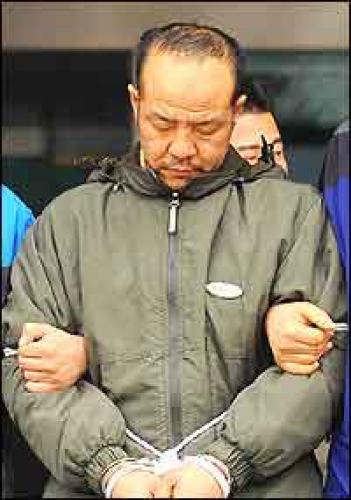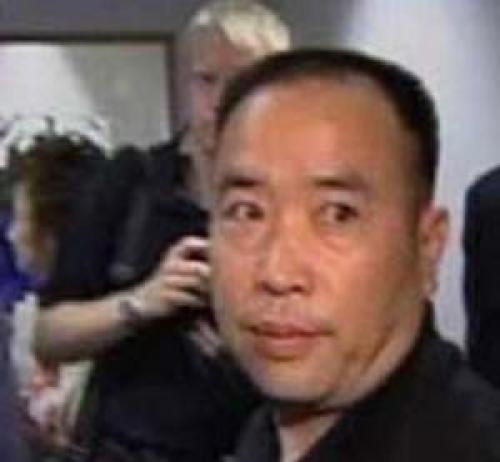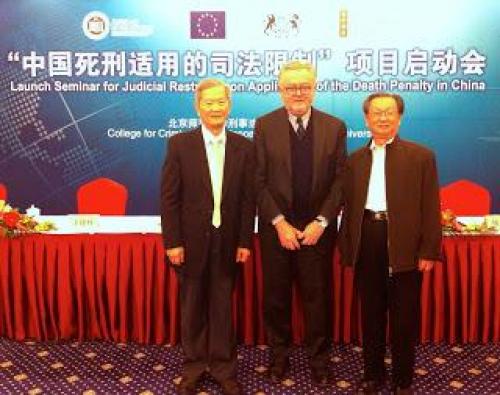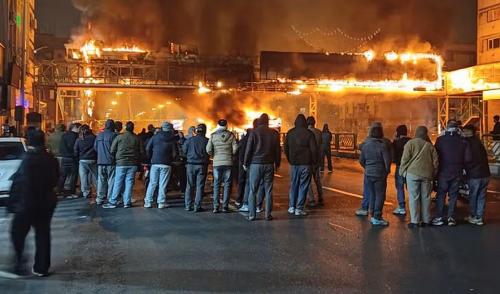government: Communist state
state of civil and political rights: Not free
constitution: last promulgated on December 4, 1982
legal system: based on civil law system; derived from Soviet and continental civil code legal principles
legislative system: unicameral National People's Congress (Quanguo Renmin Daibiao Dahui)
judicial system: Supreme People's Court, judges appointed by the National People's Congress; Local People's Courts; Special People's Courts.
religion: Daoist (Taoist), Buddhist, Christian 3%-4%, Muslim 1%-2%
note: officially atheist
death row:
year of last executions: 0-0-0
death sentences: 0
executions: 0
international treaties on human rights and the death penalty:International Covenant on Civil and Political Rights (signed only)
Convention on the Rights of the Child
Convention Against Torture and Other Cruel, Inhuman or Degrading Treatment or Punishment
situation:
a revised Criminal Procedure Law came into force in January 1997. This law reduced the number of capital offences to sixty-nine. However, in March 1997 new amendments added to the number of crimes punishable by death. There are two types of death sentence in China: immediate execution and a death sentence with suspension that allows for the commutation of the sentence when the condemned prisoner does not deliberately commit further crimes during a 2-year suspension period. Offences that attract the death penalty include such non-violent crimes as tax evasion, drug-trafficking, embezzlement, forgery, fraud, gambling, bigamy, running a brothel, habitual theft, corruption, disturbing the peace, cigarette smuggling, organizing pornographic clubs, car smuggling, exploitation of prostitutes, speculation, publication of pornographic material, stealing or trafficking in national treasures, financial fraud, sale of false invoices, sale of the pelts of two giant pandas, stealing cows, camels or horses, sale of false birth certificates, sale of false sterility certificates, sale of counterfeit money, and killing giant pandas and golden monkeys. Hacking and other cyber crimes are also punishable by death. Anyone convicted of trafficking 50 grams or more of heroin is condemned to death.
On February 25, 2011, China's newly revised Criminal Law has reduced the number of crimes punishable by death by 13 to 55.
The Standing Committee of the National People's Congress (NPC) passed the amendment to the Criminal Law Friday at its bi-monthly session.
It was the first time the People's Republic of China has reduced the number of crimes subject to the death penalty since the Criminal Law took effect in 1979.
The 13 crimes were economic-related non-violent offences, including smuggling cultural relics, gold, silver, and other precious metals and rare animals and their products out of the country; carrying out fraudulent activities with financial bills; carrying out fraudulent activities with letters of credit; the false issuance of exclusive value-added tax invoices to defraud export tax refunds or to offset taxes; the forging or selling of forged exclusive value-added tax invoices; the teaching of crime-committing methods; and robbing ancient cultural ruins.
The draft amendment was first submitted to the NPC Standing Committee, China's top legislature, last August.
The amendment also stipulates that the death penalty will not be imposed on people aged 75 or older at the time of trial, except if they commit a murder with exceptional cruelty.
According to a legal document released by the Supreme People's Court in January 2007, any act of oil or gas theft that leads to "serious consequences" such as the death of more than one person and the injury of more than three people, causes a well to blow out, leads to heavy pollution or creates "heavy economic losses" of more than RMB 500,000 ($64,000), will be subject to the death penalty.
Vandals who deliberately damage China's military telecommunication facilities will face long jail terms or even the death penalty, according to a judicial deliberation released by the Supreme People's Court (SPC) on June 28th 2007. The court stipulated that vandalism that hinders "important military communications", affects operations or inflicts losses on the army, causing the deaths of more than three people, injuring more than ten and losses exceeding one million yuan (128,200 U.S. dollars), could incur at least ten years in jail or even the death penalty. Actions that cause communication difficulties while troops conduct disaster-relief or military maneuvers, or deal with emergencies, with "extremely serious" results, could incur the same penalties.
On August 21st 2007 the SPC declared that anyone who damages electric power facilities and causes the following four types of serious consequences will be sentenced to imprisonment for 10 years, life imprisonment and even the death penalty. In line with article 119 of China's criminal law, the four kinds of grave consequences are: 1- killing one or more people, seriously injuring at least three people, or slightly injuring 10 people or more; 2- causing power cuts for six hours or longer which affect 10,000 households or industrial production; 3- causing direct economic losses of over 1 million yuan (131,500 U.S. dollars), and 4- causing other serious consequences that endanger public security.
Since July 2006 death sentences are pronounced in public and the condemned prisoner is presented to the crowd and forced to bow his head and wear a sign with the name of his crime written on it around his neck. Defendants are often denied legal assistance, and when it is granted the lawyers have only a day or two to prepare their defence. Moreover, death sentences are often decided before the trial by a judging committee. After confirmation of a death sentence, the defendant has from 3 to 10 days to appeal. If no appeal is presented, the sentence is automatically referred to the Supreme People's Court which makes a decision within 6 weeks. Appeals are rarely successful. Executions are carried out with a shot to the back of the head or the heart from close quarters. The condemned are made to kneel, with their legs in shackles and their hands tied behind their backs.
In 1997, China introduced the lethal injection, applied first in Yunnan province, and has recently introduced mobile execution units. The units consist of specially-modified vans manned by execution teams and equipped with facilities to put people to death with lethal injections close to the venue of the trials. This removes the need to transfer prisoners to execution grounds, a procedure that requires considerable security measures. Convicts are strapped to gurneys a few minutes after their death sentences become final, the needle is inserted into their arm, a member of the execution team presses a button, and the fatal chemicals are injected into the veins. The whole procedure can be viewed on a monitor next to the driving seat and recorded. Since the September 11 attacks on the USA, the Chinese government has been using the war on terror to justify its crackdown on all forms of political or religious dissent in the region. Suspected 'separatists, terrorists or religious extremists' have for years faced imprisonment or execution after unfair trials, as well as torture and long-term detention without charge or trial or access to lawyers or family. In particular, China has repackaged its repression of Uighurs in the Islamic northwest of the country as a fight against 'terrorism’ and pressured neighbouring countries like Kyrgyzstan, Kazakhstan, Nepal and Pakistan to forcibly return Uighur asylum-seekers.
Members of religious or spiritual movements unauthorised by the State are often subject to persecution, interrogation, incarceration and physical abuse. In 2004 and 2005, hundreds of places of worship – clandestine mosques, Tibetan temples, Catholic churches, indigenous Protestant churches - were shut down by the police and in some cases, demolished. Thousands of suspected practitioners of Falun Gong, a spiritual movement branded an “evil cult” by the Communist authorities, remain imprisoned in jails, labour camps and psychiatric facilities. Since they were first persecuted in 1999, hundreds of Falun Gong practitioners died in labour camps, many as a result of torture.
“China has no plans to abolish its death penalty but is carrying out reforms to ensure that it is used prudently”, Premier Wen Jiabao said on March 14, 2005. "Given our national conditions, we cannot abolish the death penalty. What we are doing is instituting an effective system in China to ensure prudence and justice in giving death penalties.''
Statistics on the death penalty continue to be considered a state secret in China, though in recent years some reports of a quasi-official nature have begun to trickle out of academic, legislative and judiciary corridors.
On February 27th 2006, Liu Renwen, professor of the Chinese academy of social sciences, confirming that, according to estimates that circulate in academic circles, 8,000 people are executed each year.
On march 15th 2007, Liu Jiachen, political counsel and former vice president of the Supreme People’s Court, declared that the number of people condemned to death in 2006 was the lowest in the last ten years. he did not, however, provide exact figures.
On June 7th 2007, John Kamm, founder of the Dui Hua Foundation, stated that executions in China had decreased by at least 40% in recent years bringing the total to approximately 7,500 annually. This, in part, was thanks to the 2008 Olympic games being awarded to host city Beijing six years ago.
On June 8th 2007, Ni Shouming, a spokesperson for the Supreme Court, declared that in the first five months of the year, the number of executions decreased by 10% in respect to the same period the prior year. A result, explained the magistrate, linked to reforms giving the Supreme Court exclusive powers of review and confirmation of death sentences, which has made lower courts more prudent in handing down capital condemnations.
In the opinion of Chen Weidong, professor of criminal law at Renmin University of China, death sentences are destined to decrease by 20%.
In any event, all estimates confirm China as the world’s top executioner, a title that will probably remain unrivalled in modern history and that, besides sparking criticism from international human rights organizations, has begun to cause the Chinese authorities themselves to reflect, resulting in some limited progress.
The most significant step is surely that of the approval, on October 31st 2006, of an amendment requiring that all death sentences receive confirmation from the Supreme Court. The new law represents one of the most important reforms regarding the death penalty in China in the last twenty years and is a drastic turn from the “strike hard” campaign of the 80s.
From January 1, 2007, the Supreme People's Court has to review, as it had done up to 1983, all death penalty cases before executions are carried out. However, this reform, and a suggestion that in some cases longer prison sentences should be passed instead of the death penalty, does still not address 'confessions' extorted through torture, limited access to lawyers, and political interference in the judicial process.
In 2007 and in the first five months of 2008 reports suggested that condemnations handed down by Chinese Courts in 2007 reflected a reduction of capital sentences as high as 30%. These facts surfaced on May 9, 2008, during a forum held in the port city of Liaoning Province, northeast China, at which legal experts, researchers and judges from China and Britain participated, with a focus on restriction and abolition of the death penalty.
According to Li Wuqing, a judge with the No. 1 criminal court of China's Supreme People's Court, the restitution to the same Court of exclusive power in approving death sentences has caused the country’s courts to handle capital cases with greater prudence. Wu Sheng, a judge from a court in Liaocheng City, Shandong Province, said at the forum that the number of approved death penalties decreased by up to 40 percent last year in that city. Based on reforms taking effect on January 1, 2007, every capital sentence handed down in China by an inferior court must be reviewed by a panel of three judges of the Supreme Court that are responsible for checking the facts of the case, the legal norms applied and procedures as well as comparing these with the preceding trials.
According to the Beijing Morning Post of March 8, 2008, China's Supreme Court rejected 15 percent of all death sentences handed down by lower courts in 2007 due to a lack of evidence, injustices and illegal court procedures. Citing senior Supreme Court judge Huang Ermei, the newspaper said the verdicts were overturned “because facts surrounding initial convictions were unclear, evidence insufficient, punishment inappropriate, procedures illegal and other reasons”. Huang was quoted as saying China was not prepared to do away with capital punishment despite the problems in its lower courts. “The abolishment of the death penalty is the trend in international criminal justice, but in our nation we do not have ample conditions to abolish capital punishment,” said Huang.
Hands Off Cain estimates that at least 5,000 executions took place in the country in 2006 and in 2007.
On December 18, 2008 and December 21st, 2010, China voted against the Resolution on a Moratorium on the Use of the Death Penalty at the UN General Assembly.




